CURRICULUM PREFERENCES 2024












Please be assured that we will support you throughout the curriculum preferences process, so please do not worry unduly. This booklet is a great place to start; take the time to carefully read through the information with your son/daughter and do not hesitate to contact us if you have any questions regarding the content.
We aim to provide students with a broad and balanced key stage 4 curriculum which meets their needs, aspirations and future careers. A broad and balanced range of subjects is more useful than a narrower range. Students should be aware that they are expected to study a range of EBacc subjects. We encourage all students to be ambitious. Every ‘preference form’ will be carefully scrutinised to ensure the qualifications chosen by students provide an aspirational curriculum which we deem to be appropriate.
Students will need to carefully select an extra subject as a reserve choice in case their other choices do not provide a broad and balanced curriculum or a low uptake means that a course is unable to run.
Thursday 7th March - Curriculum Evening - 6pm to 8.00pm
An opportunity to find out more about the KS4 curriculum, speak to subject leaders and find out how to select your curriculum preferences.
Friday 15th March - Form deadline
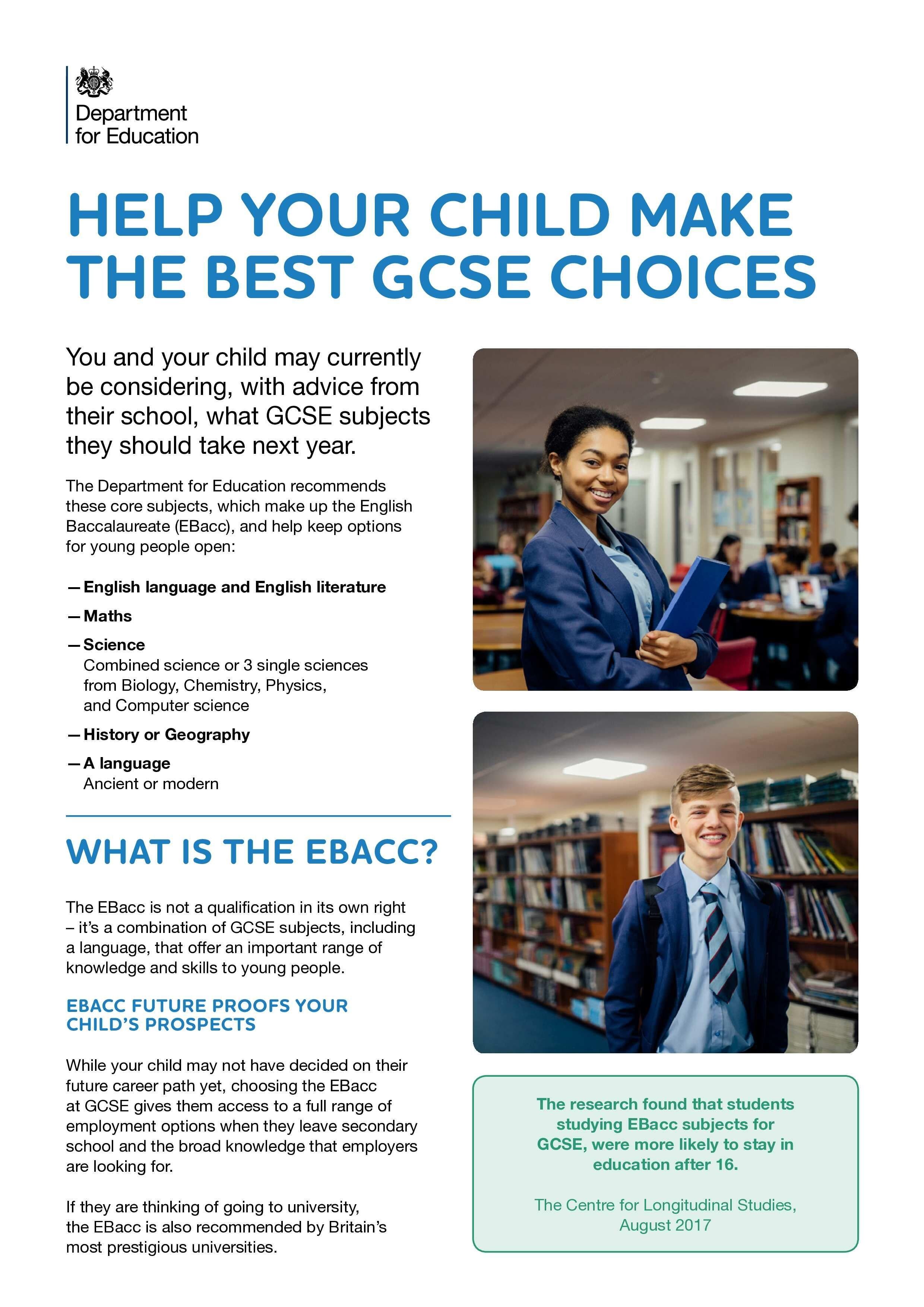

Mrs L Banks : Subject Leader


‘When I read great literature, great drama, speeches, or sermons, I feel that the human mind has not achieved anything greater than the ability to share feelings and thoughts through language.’
James Earl JonesThe importance of studying of English.
The importance of understanding our language, its heritage and its vast array of vocabulary enables each individual to understand the world around them, helps support in the current study of all subjects and any future study but more importantly, it helps individuals communicate successfully, build positive relationships both socially and professionally as they understand the nuances of our rich language
Course Content
The course includes the exploration of fiction and non fiction texts. Students are required to display skills in analysing, the language, and structure of texts. They will need to be able to evaluate , summarise and compare texts. In addition they will develop transactional and creative writing skills.
Paper 1: Explorations in Creative Reading & Writing
1 hour 45 minutes (80 marks / 50% of qualification):
• Section A - Reading (40 marks / 25%)
One single text -C20th Literature
• Section B - Writing (40 marks / 25%)
One creative writing task either a description or a narrative.
Paper 2: Writers Viewpoints and Perspectives
1 hour 45 minutes (80 marks / 50% of qualification)
• Section A – Reading (40 marks / 25%)
One non-fiction text and one literary non-fiction .
• Section B– Writing (40 marks/25%)
Writing to present a viewpoint: article, letter or speech.
Spoke Language: one presentation/speech, including responses to feedback (does not form part of final grade)
A GCSE that is recognised as an EBacc qualification.
Future Pathways:
English Language underpins all careers as it helps with clear communication..
Some Careers you could consider with an English Language qualification:
• Journalist
• Teacher - Primary or Secondary
• English as a Foreign Language Teacher
• Lexicographer
• Private Tutor
• Writer
• Web Content Manager
• Librarian
• Education Consultant
• Admin Assistant
• Proof Reader
• Lawyyer
• HR Officer

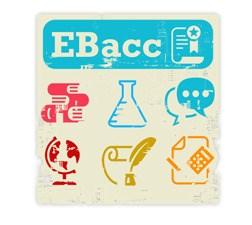
GCSE - EBACC
Mrs L Banks : Subject Leader


When we read great literature, something changes in us that stays changed. Literature remembered becomes material to think with.”
Donald HallThe importance of studying English Literature.
Studying English literature opens up a world of inspiration and creativity, while also developing skills that are essential for today's global environment. It is a chance to discover how literature makes sense of the world through stories, poems, novels and plays. It is also a chance to sharpen ones own ability to write, read, analyse and persuade.
Course Content:
Students study a range of literary texts and genres. These include , Shakespeare, 19th Century fiction, a modern play and poetry. Students will learn how to analyse the meaning of texts and relate this to the context in which they were written..
Paper 1: Shakespeare and the 19th Century Novel - 1 hour 45 minutes (64 marks / 40% of qualification)
Section A: Shakespeare Play
Students will be required to write in detail about an extract from the play and then to write about the play as a whole.
Section B: The 19th Century Novel
Students will be required to write in detail about an extract from the novel and then to write about the novella as a whole
Paper 2: Modern Texts and Poetry - 2 hours and 15 minutes (96 marks / 60% of qualification)
Section A: Modern Texts
Students will answer one essay question from a choice of two on their studied modern prose or drama text.
A GCSE that is recognised as an EBacc qualification.
A qualification in English Literature displays to your future employers the fact that you can understand and analyse situations.
Some careers you could consider with an English Literature qualification:
• Journalist
• Teacher - Primary or Secondary
• Actor
• Creative Director
• Theatre Critic
• Speech Writer
• Poet
• Author
• Librarian
• Communication Manager
• Proof Reader
• Lawyer
• Political Analyst




"Mathematics is not about numbers, equations, computations, or algorithms: it is about understanding."
William Paul Thurston
Studying mathematics isn’t just about answering a calculation, maths is about creating building blocks and rules that we need in order to communicate.
Studying maths helps us find patterns and structure in our lives. Practically, maths helps us put a price on things, create graphics , build websites, build skyscrapers and generally understand how things work or predict how they might change over time and under different conditions
The mathematics specification is dividing into 6 strands; number, algebra, geometry, ratio and proportion, statistics and probability. The aims and objectives of this qualification are to develop fluent knowledge, skills and understanding of mathematical methods and processes. By acquiring these, students will be able to problem solve, reason mathematically and communicate appropriately given a variety of contexts.
There are 3 exam papers for both foundation and higher tier of entry. The first paper is non-calculator with papers 2 and 3 allowing the use of a calculator. All three papers consist of 80 marks, with the combined total of the three papers being used to calculate the grade achieved. Below you can find a breakdown of the topic areas assessed in each tier.

A GCSE in mathematics, there may also be an opportunity to study further mathematics in Year 11.
Essential for A level Mathematics and A Level Further Mathematics
• Computer Science
• Architecture, Building and Planning
• Education
• Business and Communications
• International Relations
• Engineering
• Accountancy
• Data Analyst
• Software Engineer


GCSE - EBACC
Mrs R Hoy : Subject Leader


“I have no special talent. I am only passionately curious.” Albert Einstein
“Scientists have become the bearers of the torch of discovery in our quest for knowledge.”
Stephen Hawkins
Science sparks and develops our natural curiosity to explore and learn about the world around us. We encounter science in everything we do, understanding how things work and developing our knowledge and understanding of the world around is important and we enjoy teaching our students scientific concepts and developing their understanding. Science has a practical element and our students are taught observational and analytical skills through conducting investigations, forming conclusion and evaluating methods and data.
Course Content
Biology: 1) Cell biology, 2) Organisation, 3) Infection and response, 4) Bioenergetics, 5) Homeostasis and response, 6) Inheritance, variation and evolution, 7) Ecology, 8) Key Ideas.
Chemistry: 1) Atomic structure and the periodic table, 2) Bonding, structure and the properties of matter, 3) Quantitative chemistry, 4) Chemical changes, 5) Energy changes, 6) The rate and extent of chemical change, 7) Organic chemistry, 8) Chemical analysis, 9) Chemistry of the atmosphere, 10) Using resources.
Physics: 1) Energy, 2) Electricity, 3) Particle model of matter, 4) Atomic structure, 5) Forces, 6) Waves, 7) Magnetism and electromagnetism, 8) Space physics (physics only)
Biology, Chemistry and Physics GCSEs are 100% externally assessed. There are six exams at the end of the course each lasting 1 hour and 45 minutes and totalling 100 marks each. The papers will include multiple-choice, short answer questions, calculations and extended open-response questions
Students will be assessed and entered for the correct tier of entry, either foundation of higher, in order to maximise their potential.
Paper 1: Biology Paper 1
Paper 2: Chemistry Paper 1
Paper 3: Physics Paper 1
Paper 4: Biology Paper 2
Paper 5: Chemistry Paper 2
Paper 6: Physics Paper 2
What qualification will I get?
3 GCSEs which are recognised as part of the EBacc
Future Pathways & Careers
• A level Biology, Chemistry, Physics
• T-level Science
• Nurse
• Lab Technician
• Education
• Engineering
• Medicine
• Veterinary Medicine
• Biochemistry
• Environmental Scientist
• Marine Biologist
• Food Production
• Forensic Scientist
• Pharmaceutical Research




Every single one of us use computers in our day-to-day lives for everything from gaming and communicating by email or on social media to finding information and shopping. In 2023 96.2% of the population have a smart phone and 63.1% have a laptop or desktop computer, we use computing devices everyday for work and school.
Computer Science was introduced to give you more advanced skills so you can make computers work for you. It also teaches you about the ever-changing risks of using the internet, so you can keep your personal information safe and avoid security risks.
It gives you a variety of skills you can apply to your other subjects and in your career, and opens the doorway to new and emerging career paths. IT companies like Google and Microsoft helped the Government design the course because they want to make sure young people have the digital skills employers look for today.
This course is especially for those who have a logical way of thinking, want to learn how to code and learn how computers work internally.
The syllabus provides opportunities for students to understand and apply the fundamental principles and concepts of Computer Science, including problem solving and logical thinking. Students will analyse problems in computational terms through practical experience of solving such problems, including designing, writing and debugging programs. Students will learn how to think creatively, innovatively, analytically, logically and critically. Students gain an understanding of the components that make up digital systems, and how they communicate with one another and with other systems. Student will delve into the impacts of digital technology to the individual and to wider society.
Paper 1: Principles of Computer Science
Written examination—1 Hour 30 Minutes—75 Marks (50%)
Paper 2: Application of Computational Thinking
Onscreen examination—2 Hours—75 Marks (50%)
What qualification will I get?
A GCSE which is recognised as part of the EBacc
Future Pathways & Careers
• Apprenticeships available:
• Software Developer
• Cyber Security Technologist
• Further Qualifications:
• A Level Computer Science (Not required)
• Some Careers:
• App Developer
• Automotive Engineer
• Computer Games Developer
• Cyber Intelligence Officer
• Head of IT
• IT Project Manager
• Software Developer
• Web Designer
• Web Developer




Languages can bring enormous benefits both personally and professionally. Research has shown that language capability can increase in individuals brainpower as well as improve our levels of trade with the rest of the world. Therefore, it is no surprise that those who speak another language have the opportunity to have a higher salary and employment rate .
A GCSE language qualification on your record will catch the eye of anyone reading your job, college, apprenticeship or university application, and will be valued by future employers. Above all else, learning a language is something that can open your mind and allow you to see the world in new and exciting ways. Students must choose to study French in order the achieve the English Baccalaureate (EBacc).
Students who enjoy the challenge of learning a language, and who want to have the knowledge and skills to further their employment opportunities within fields such as business, engineering, and tourism. Should study French.
Course Content
The syllabus provides opportunities for students to acquire knowledge and understanding, to apply the four main skills of Listening, Reading, Speaking and Writing, as well as develop a cultural awareness of the ways in which people live and work in French speaking countries. The following themes will be studied in depth to achieve this: People and Lifestyle, Popular Culture, and Communication and the world around us.
Assessment
Paper 1 Listening 25% (Foundation 35 minutes, Higher 45 minutes)
Paper 2 Speaking 25% (Foundation 7-9 minutes, Higher 10-12, plus preparation time)
Paper 3 Reading 25% (Foundation 45 minutes, Higher 1 hour)
Paper 4 Writing 25% (Foundation 1 hour 10 minutes, Higher 1 hour 15 minutes)
What qualification will I get?
A GCSE which is recognised as part of the EBacc
Future Pathways & Careers
Essential for A level French
• Travel Industry
• Fashion
• Education
• Business and Communications
• International Relations
• Journalism
• Sports Industry
• Law
• Politics
• Medicine


GCSE - EBACC
Mr G Felvus : Subject Leader

Geography inspires a curiosity and fascination about the world and its people that will remain with them for the rest of their lives. We will equip pupils with knowledge about diverse places, people, resources and natural and human environments, together with a deep understanding of the Earth’s key physical and human processes. Geographical knowledge, understanding and skills provide the framework and approaches that explain how the Earth’s features at different scales are shaped, interconnected and change over time. Geography also develops lifelong skills in relation to applying and reasoning out information to form well-argued conclusions to everyday issues in the world around us.
The syllabus provides opportunities for students to acquire knowledge and understanding, apply skills and techniques, and develop a sensitive awareness of the ways in which people interact with their human and physical environments. A range of skills will be developed and used through practical work, geographical investigation and use and interpretation of data, including ICT, maps and photographs. A sensitive awareness of the environment will be developed through an appreciation of the attitudes and values of decision-makers in society.
Assessment

Paper 3 is an assessment of skills: 15% is based on fieldwork, 15% is the interpretation of unseen materials.
What qualification will I get?
A GCSE which is recognised as part of the EBacc
Future Pathways & Careers
Essential for A level Geography
Specific careers are listed below. In addition, Geography is seen as a desirable entrance qualification into most career routes due to the broad and balanced grounding it gives to understanding and reasoning the world around us and the skills gained from reasoning out and forging argued viewpoints in relation to everyday events.
• GIS and Computer Science
• Architecture, Construction and Planning
• Education
• Business and Communications Industries
• International Relations
• The Oil Industry
• Meteorology
• Geology
• Engineering
• Agriculture



‘A people without the knowledge of their past history, origin and culture is like a tree without roots’.
Studying History helps us to understand the past. It is of huge importance that the past does not remain an unexplored place. History helps us understand how events and people from the past have shaped the world we live in today. In history we learn about ourselves and how we came to be and also develop an ability to avoid the mistakes of the past and create better pathways for our future societies. Studying History serves to develop analytical and interpretation skills that enable us to question and not settle for information at face value, which is of huge importance in the context of today.
The syllabus provides opportunities for students to acquire knowledge and understanding, apply skills and techniques, and develop a broad and deep awareness of the past. There is focus on British History and Britain’s interactions with the wider world and also international History and the tensions that developed throughout the inter war period, with particular focus on Germany. A range of skills will be developed and used through the analysis of historical sources and evaluation of interpretations. A deep and broad understanding of past people and events will be developed throughout the course.
Paper 1 Germany 1900-1945: Democracy and Dictatorship
and Tension: Inter-war years 1918-1939
Paper 2 Norman England: 1066-1100
Migration and Empire 790-Present day
What qualification will I get?
A GCSE which is recognised as part of the EBacc
Future Pathways & Careers
Essential for A level History
• Archaeologist
• Costume Designer
• Genealogist
• Historic Buildings Inspector
• Author
• Journalist
• Librarian
• Museum Education Officer
• Professional Researcher
• Tour Guide


GCSE
Mr B Burgess: Subject Leader Creative Arts
Mr J Colluney: Principal Teacher


Why study Art?
Art is a subject which allows you to develop your own individual creativity. You will have the opportunity to learn about the work of other artists and use that as a means to develop your own individual style. Taught lessons will allow you to develop your knowledge of artistic techniques and processes– allowing you to refine your own artistic interests and to create exciting and interesting final pieces.
The syllabus provides opportunities for students to develop their artistic skills by researching the work of some of the greatest artists from the past and present and using the approaches used by these artists to allow you to develop your own style. You will be required to develop, refine and record your ideas, leading to a final creative response which reflects your learning and the development of your skills.
Unit 1: Portfolio of work - 60%
Component 1 (portfolio) students develop responses to initial starting points, project briefs or specified tasks and realise intentions informed by research, the development and refinement of ideas and meaningful engagement with selected sources. Responses will include evidence of drawing for different purposes and needs and written annotation.
Unit 2: Externally set assignment- 40%
In Component 2 (externally set assignment) students respond to a starting point provided by AQA. This response provides evidence of the student’s ability to work independently within specified time constraints, realise intentions that are personal and meaningful and explicitly address the requirements of all four assessment objectives.
What qualification will I get?
A GCSE qualification
Future Pathways & Careers
Essential for A level Art
• Artist
• Teacher
• Graphic Designer
• Set Designer
• Fashion Designer


Business Studies gives you the opportunity to learn about the many areas of business and how these are applied in real-life situations. You will be able study how small, national and international businesses are operated and explore the basics of starting up a new business venture. You will gain a good understanding of what it means to be enterprising, how human resources operate in a business, how to research and market a business and how businesses can manage their finances. This course may suit anyone who aspires to start and run their own business or would be interested in studying businesses who are in the news, and are interested in what makes a business successful. You may work in a business someday, so this course will provide an understanding of how businesses operate.
The specification introduces students into what it means to be entrepreneurial and the types of skills that entrepreneurs need. You will learn the basics of running a small business, from finance to marketing. You will then go on to look at national and multinational businesses and how they differ from small businesses. A range of skills will be developed, including ICT skills, numerical calculation skills and extended writing skills. You will become confident in applying your theoretical business knowledge to real life business scenarios and making judgements and evaluating business success.
Paper
Assessment is a combination of multiple choice, short answer, calculation and extended response questions. 2/3 of questions are based on real business scenarios.
What qualification will I get?
A GCSE qualification.
A great stepping stone to A Level Business or Economics, so vocational courses such as BTEC or Cambridge Nationals.
Degree pathways or careers in:
• Business
• Economics
• Law
• Management
• Accounting
• Marketing
• Human Resources
• International Business
OCR Cambridge National
Mrs Langley: Subject Leader
Mrs Fielden : Principal Teach-


Why study Child Development?
Educating and nurturing young children is a vital role in today’s society. This course will allow you to develop your understanding of how children grow– from conception to adulthood, exploring how to keep them safe, how to nurture their growing minds and bodies and what normal development milestones might look like.
The syllabus provides opportunities for students to develop their knowledge of child development through the exploration of three topics of study exploring how children grow, what equipment might be needed to support them on their journey to adulthood and explore developmental norms and the importance of play.
Unit R057: Health and well-being for child development
Written paper OCR-set and marked (80 marks)
Unit R058: Create a safe environment and understand the nutritional needs of children from birth to five years.
Centre-assessed tasks OCR-moderated (60 marks )
Unit R059: Understand the development of a child from one to five years
Centre-assessed tasks OCR-moderated (60 marks )
What qualification will I get?
A Level 2 Cambridge National Certificate
Future Pathways & Careers
Useful for further study in Child Development/Child Care
• Nursing
• Medicine
• Teaching
• Early Years Practitioner
• Nursery Nurse
• Social worker


This course focuses on developing a strong understanding of what the media is, and how it impacts on life today. The media is a huge influence on all our lives, and having a good understanding of what it is will help you to become confident citizens of the 21st Century digital era. The course is varied, and provides opportunities for you to develop practical ICT skills in a range of different media.
This course is great for those interested in gaining practical skill in media production. If you think you would be interested in a subject that has a large creative component, where you will be designing and then creating your own projects, then this would be a good course for you.
As well as studying the theoretical side of the media, you will create practical digital media products. These may include graphics, websites, game concepts/design, animation, sound, photography or video. Pupils will learn the processes involved in pre-production, such as work schedules, research, planning, budgeting and legislation, before developing their own media products. There will be opportunities to try out different types of media production and the practical projects will allow you to develop and express your creative, as well as your technical skills.
OCR Cambridge Nationalexam
R094 Mandatory unit, internally marked and moderated by OCR. 25%
Approximately 10–12 hours.
R095 to R099 One optional unit, internally marked and moderated by OCR. 35%
Approximately 12–15 hours.
What qualification will I get?
A Cambridge National qualification that is equivalent to one GCSE.
A great stepping stone to A Level Media Studies, so vocational courses such as BTEC or Cambridge Nationals.
Degree pathways or careers in:
• Media
• Advertising
• Business
• Film and TV Production
• Radio
• Web development
• Graphic Design
• Photography
• Animation
• Journalism
GCSE
Mrs K Langley : Subject Leader, Mr A Conway: Principle Teacher

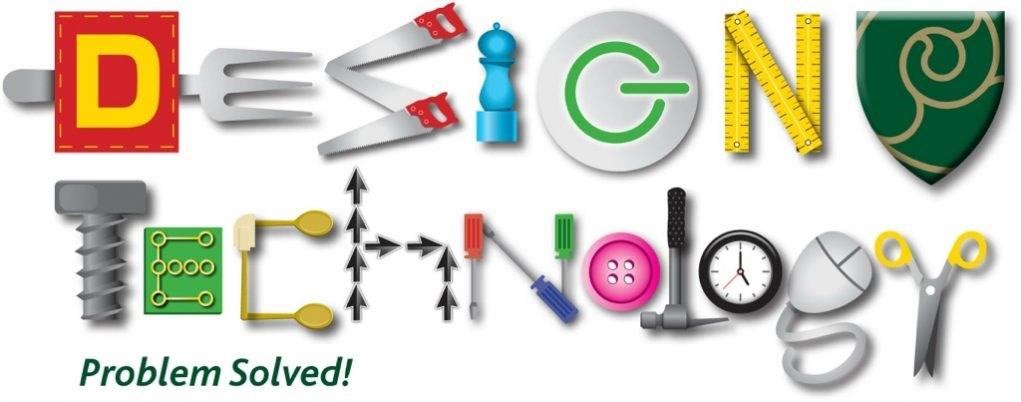
Why study Design and Technology?
Design and Technology brings together many different disciples within the creative sphere. Maths, Science, Engineering, Art, Graphics and Design all come together to design and make stunning products. Pushing your own boundaries and setting yourself a creative challenge is what this subject is all about. If you are creative and enjoy practical ways of learning then this subject is for you. Sketching, drawing, using wood, metals and plastics and other materials available will allow you to take control of your own creativity and design. The way in which we learn in design is by trying out our ideas and making them work. It’s not always easy, but the challenge is satisfying and different to the challenges found in other subjects. It is hands on and practical, supported with theoretical concepts to underpin the knowledge and understanding.
The students will begin Year 10 working on a range of small activities designed to develop, challenge and build their skills and confidence in a range of materials. They will become confident and competent in all of the designing and making skills in readiness for their final GCSE piece of coursework. As they are involved in the design element they will also be able to work in disciplines that appeal to them, so lots of flexibility.
There are two parts to the assessment process; the Examination and the Non-Examined Assessment. Further details are below.
Design and make task (NEA):
A substantial design and make task to include investigate, design, make and evaluate 50% of the GCSE
A context set by the exam board and the students will design within this External exam
Sections A and B. Section A is Core principles and Section B is materials specific, so wood metal or plastic based. 50% of GCSE
What qualification will I get?
You will get a GCSE in Design and Technology through Pearson
Future Pathways & Careers
Essential for A level Product Design
Recommended for:-
• Engineering:: Aeronautical, Mechanical, Electrical, Agricultural and Electronic.
• Art and Design A level, T Level and BTEC courses at college.
• Ideal for those thinking about apprenticeships in Engineering and Manufacturing.
• Working within trades; Plumbing, Construction and Joinery.
• Graphic Design, Jewellery Design, Fashion Design and Interior Design.
• Garden and Landscape Design.
GCSE
Mr Burgess : Subject Leader Creative Arts

Drama supports and encourages personal expression and the exploration of a wide range of cultures, experiences, perspectives, and the world in which we live. Drama allows students to develop transferable skills in leadership, communication, creativity, critical thinking and problem solving. At examination level, drama offers students, of all abilities and interests, a range of opportunities in subject-specific skills including performance, design and technical roles. By creating space for self-expression and the exploration of emotions, involvement in drama enables students to develop empathy, confidence, enhanced communication skills and an understanding of what it means to be a valued member of society. This course can increase student levels of confidence, their performance and/or presentation skills and suit those who enjoy reading and/or studying theatre.
GCSE Drama offers pupils the opportunity to explore drama as a practical art form in which ideas and meaning are communicated to an audience through choices of form, style and convention. Students will create, perform and respond to drama informed by their theoretical knowledge of drama and theatre. For the practical units, pupils choose to work as performers or designers.
Why study Drama?Component 1 - Understanding Drama
This component is a written exam in which students are assessed on their knowledge and understanding of how drama and theatre is developed and performed, including in connection to a set play and on their ability to analyse and evaluate the live theatre work of others. The paper is divided into three compulsory sections:
• Section A: Theatre roles and terminology
• Section B: Study of a set text
• Section C: Live theatre production
This is an externally assessed unit - 40%
Component 2 - Devising Drama
This is a practical component in which students are assessed on their ability to create and develop ideas to communicate meaning for theatrical performance, apply theatrical skills to realise artistic intentions in live performance and analyse and evaluate their own work.
This is an internally assessed unit - 40%
Component 3 - Texts in practice
This component is a practical component in which studentss are assessed on their ability to apply theatrical skills to realise artistic intention in live performance.
This is an externally assessed unit - 20%
What qualification will I get?
A GCSE in Drama
Future Pathways & Careers
• Actor
• Teacher
• Director
• Theatre Manager
• Solicitor
• Public speaking roles
• Lighting or Sound Technician/Designer
• Broadcaster
• Community Arts Worker
• Arts Administration


“
Cooking with kids is not just about ingredients, recipes, and cooking. It’s about harnessing imagination, empowerment, and creativity.”GUY FIERI
Why study Hospitality and Catering ?
Following this satisfying, and meaningful course will encourage students to gain an insight into the Hospitality and Catering sector. With their design work and dish ideas, the students are to be encouraged to be innovative and creative. The course will give students the chance to pick up new abilities and deepen their grasp of a life skill that they will always carry with them and require. It will encourage students independence, provide them the freedom to take risks, and help them grow as people. Students will be able to balance their studies and gain a deeper level of knowledge and comprehension in both a practical and written environment. Students will be challenged by this course and encouraged to reach their full potential while having fun.
The course provides opportunities for students to develop their practical skills, a range of keys skills and their capacity for imaginative, innovative thinking, creativity and independence.
Through Unit 1, learners will gain and develop comprehensive knowledge and understanding of the Hospitality and Catering industry including provision, health and safety, and food safety. While Unit 2, will enable learners to develop and apply knowledge and understanding of the importance of nutrition and how to plan nutritious menus. They will learn the skills needed to prepare, cook and present dishes and they will also learn how to review their work effectively.
Unit 1
The Hospitality and Catering Industry - written examination. (1 hour 20 minutes) 40%
Unit 2 Hospitality and Catering in action - controlled assessment. (12 hours) 60%
What qualification will I get?
A level 1/2 technical award which is equivalent to a GCSE through Eduqas
Future Pathways & Careers
• Chef
• Environmental Health Officer
• Food Journalist
• Sports Scientist
• Catering Manager
• Events Manager
• Food Technologist
• Dietitian
• Teacher
• Front of House Manager
• Food Stylist / Photographer.
• Hotel Manager

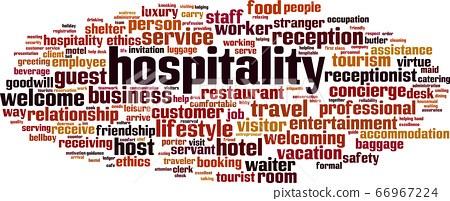

GCSE
Mr B Burgess: Subject Leader Creative Arts
Mrs J Crow : Principal Teacher

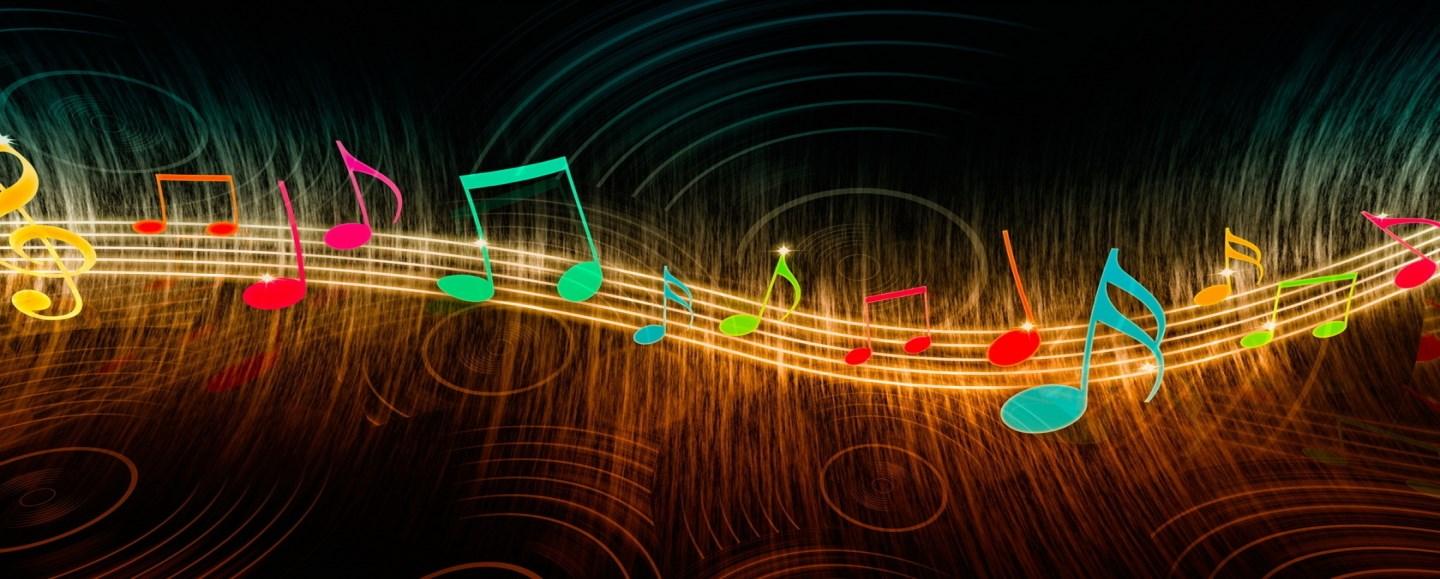
Music is all around us and part of our everyday life experience. Music is recognised by universities and employers as a subject that requires creativity, team work and academic study and so is well respected as a GCSE choice. The study of music allows you to develop your own musicianship while learning about the music composed by others. You will spend your time playing your chosen instrument, creating your own music and exploring composition techniques. If you play an instrument or sing well then you can do very well at this course.
The syllabus provides opportunities for students to develop their skills across the core areas of performing, composing and listening/appraising. Teaching is focused on 8 set works that are chosen by the exam board and range from works by Queen to Beethoven, Purcell to John Williams– there really is something that everyone will enjoy listening to. In performing lessons, your will work on your own instrument or use your voice and have opportunities to play together in class and in concerts and events. Composition work
Component 1 : Performing - students will perform and record a variety of pieces throughout the course. One SOLO PERFORMANCE (15%) and one ENSEMBLE PERFORMANCE (15%) will be submitted to the exam board at the end of the two years. The expected level of instrumental skill for candidates is grade 4 at ABRSM or Rock School standard by the end of the course
Assessment - 30% of the overall mark (Internally Assessed and Externally Moderated)
Component 2 : Composing - students will learn a variety of compositional and arranging techniques. Two COMPOSITIONS each worth (15%) will be submitted to the exam board, one to a brief set by the board at the start of year 11, and one to a brief chosen by the student.
Assessment - 30% of the overall mark (Internally Assessed and Externally Moderated)
Component 3 : Appraising - students will develop their listening and appraising skills through the study of music across a variety of genres and styles. This unit is assessed in a listening examination at the end of Y11. The content for this unit is grouped into 4 distinct Areas of Study (AOS) each comprising two set works.
Assessment - 40% of the overall mark (Externally Marked Exam)
What qualification will I get?
A GCSE qualification which is highly regarded by further education providers and employers
Future Pathways & Careers
Essential for A level Music
• Performing
• Teaching
• Theatre Management
• Arts Management
• Sound Engineering


The course will appeal to you if you have a keen interest in sport, and play competitively inside and outside of school.
This course develops knowledge and understanding about key aspects in sport, the benefits and impact of sport and exercise and how to further improve your own performance.
The syllabus provides opportunities for students to develop an awareness and scientific approach to physical activity looking at the way the body moves and functions. Students will study psychology and evaluate contemporary issues in sport. Alongside this we also look at the sociological aspects that impact participation in sport. A range of skills will be developed in order to improve student’s own sporting performances in their three chosen sports.
Assessment
Component 1: Fitness and Body Systems
Written examination: 1 hour and 30 minutes, 36% of the qualification, 80 marks
Component 2: Health and Performance
Written examination: 1 hour and 15 minutes, 24% of the qualification, 60 marks
Component 3: Practical Performance
Non-examined assessment: internally marked and externally moderated
30% of the qualification, 105 marks (35 marks per activity)
Component 4: Personal Exercise Programme (PEP)
Non-examined assessment: internally marked and externally moderated
10% of the qualification, 20 marks
What qualification will I get?
A GCSE
Future Pathways & Careers
Essential for A level PE
• Sports Science
• Sports Psychologist
• Sports Coaching
• Physiotherapist
• PE Teaching
• Public Services
• Officiating
• Fitness industry
• Army



Religious education is important because like every other subject, it provides a particular set of materials through which pupils come to understand important things about the world, and themselves. It is the study of religion and beliefs and it stands in the curriculum as a set of ideas and practices which have shaped and continue to shape our world. The business of religious education is an exploration of the influence of religions and beliefs on individuals, culture, behaviour and national life.
This GCSE covers a range of the major world religions, six contemporary ethical themes and two textual studies, ensuring students have a diverse choice of intriguing subjects to explore. Students will be challenged with questions about belief, values, meaning, purpose and truth, enabling them to develop their own attitudes towards religious issues. Students will also gain an appreciation of how religion, philosophy and ethics form the basis of our culture. They will develop analytical and critical thinking skills, the ability to work with abstract ideas, leadership and research skills.
Component 1: The study of Religions: Beliefs, teachings and practices
Beliefs, teachings and practices.
Focus on two from: • Buddhism • Christianity • Catholic Christianity • Hinduism • Islam • Judaism • Sikhism. Christianity and Catholic Christianity is a prohibited combination.
1 hour and 45 minutes written exam
Component 2: Thematic studies
Either: four religious, philosophical and ethical studies themes or two religious, philosophical and ethical studies themes and two textual studies themes.
1 hour and 45 minutes written exam
Additional information
To be successful in this GCSE, you will need to be able to discuss and evaluate key issues, including contemporary moral issues such as the death penalty.
Religious Studies is a literacy based subject. Therefore, students also need to be competent in extended writing and be keen to learn new subject-specific terminology.
What qualification will I get?
A GCSE
Future Pathways & Careers
• Politics
• Civil Service
• Journalism
• Media
• Charity Sector
• Law
• Nursing
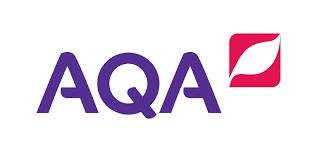
OCR Cambridge National
Mrs K Rainbows : Subject Leader


Why study Sports Studies?
Anyone who has a genuine interest in sport and physical activity. Students should be participating in physical activity outside of school On this course they will improve their leadership, communication, strategical thinking and planning skills as well as increasing their knowledge about sport, physical activity and leisure. This award will provide a pathway to access further education and will help develop a variety of skills that will be valued in the work place.
Course Content
R184: Contemporary Issues in Sport— topical and contemporary issues in sport, learning about issues which affect participation in sport. Develop knowledge about ethical behaviour in sporting events. Understand the role of governing bodies.
R185: Performance and Leadership in Sports Activities—understanding key components of performance. Organising, planning and leading a sporting activity.
R187: Increasing Awareness of Outdoor and Adventurous Activities developing a knowledge of provision for outdoor activities. For example, safety aspects . Complete a mandatory outdoor adventurous activity session.
R184: Contemporary Issues in Sport (40%)
1 hour and 15 minutes written examination. 70 marks.
R185: Performance and Leadership in Sports Activities (40%)
Assignment based. 80 marks.
R187: Increasing Awareness of Outdoor and Adventurous Activities (20%)
Assignment based. 40 marks.
What qualification will I get?
Technical Award (OCR Level 1/Level 2 Cambridge National)
• A level PE
• Apprenticeships (Exercise, Physical Activity, Sport and Health sectorS)
• Cambridge Nationals (Level 2/3)
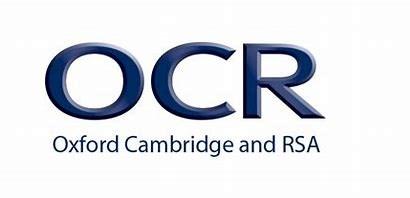

Blackpool and the Fylde College
Construction
E Sports
Hair & Beauty
Myerscough Offer
Level 1 Equine (limited number of places –students must have previous experience)
Level 1 Motor Vehicle
Agriculture
Animal Studies






Course outline
Subject Title – Technical Award in HANBT
Syllabus title – Level 1 /2 Technical Award in the Study of Hair and Beauty
Awarding Body - VTCT
Assessment – The Level 1/2 VTCT Award consists of three mandatory units:
-Business and entrepreneurship in the Hair and Beauty sector
-Anatomy, physiology and cosmetic science
-Design in the Hair and Beauty sector. The three units are not individually assessed – learners will need to achieve a pass in both an external written exam (80 marks available, 1hr 40 min) and a synoptic written assignment – the marks for these will be added together and the total mark will determine the level and grade of achievement; this will ensure a wide range of abilities is recognised and rewarded. There are no optional units. Should a learner not achieve a PASS in the written exam, they will have one resit opportunity. This is not a practical based qualification; it is predominantly theory based.
Course Outline - What will you learn?
Learners will explore design skills and techniques used within the hair and beauty sector to develop their skills in planning, carrying out research and presenting design brief ideas. They will also explore the business aspect of the hair and beauty sector and have the opportunity to investigate the principles of marketing and how entrepreneurship supports the hair and beauty sector, including how to select and design promotional activities and materials.





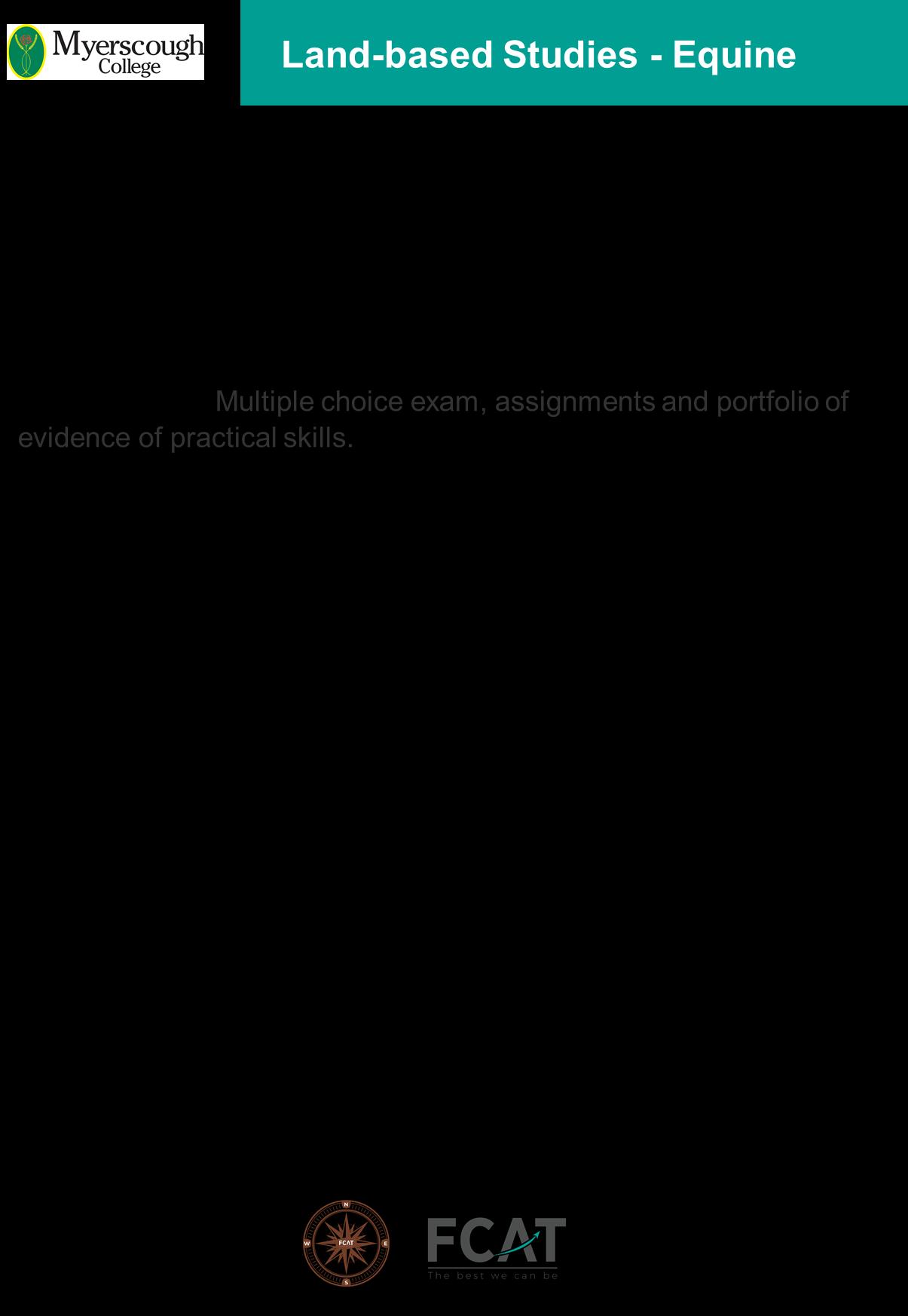




-You can choose a maximum of one course.
-You need to have any prior experience for the course.
-Be aware some courses only allow a level 1 qualification (GCSE Grade 3 equivalent).
-Students will have an extended day each Friday afternoon, if they select one of the options from the colleges. Students will return to school no earlier than 4.15pm for My-
-You could be in classes with students from other high schools in the Trust.
-All school rules apply when you are representing the school at college.

Please remember when completing the options form:
∙In order to acquire the EBacc qualification you MUST choose French and Geography or History. Studying EBacc subjects is recommended as this is the best way to keep open a wide range of educational and career pathways for the future (please ensure you have read the EBacc leaflet from the Department of Education in the information booklet for more
∙Choice 1 - Regardless of whether or not you want to follow the EBACC route, every student should choose at least one of French, GEOGRAPHY, History or Computing Science. (you can choose up to all four if you wished!).
∙Now place your choice 2, 3 and 4 beside any other subject across the entire range of subjects but be mindful that students must have a balanced curriculum which is appropriate to their academic ability. Therefore, the majority of students shouldn’t choose more than two non-GCSE subjects.
∙Place an ‘R’ beside a further subject across the range of all subjects as a backup in-case any of your preferred choices were not able to run or be
∙If choosing a course offered at Myerscough or Blackpool and the Fylde College, please choose a maximum of one of these courses.

Remember to be ambitious, reach for the stars! Don’t be put off studying subjects that you think are difficult; it’s important to challenge yourself and build resilience. Think about what you are good at and the subjects you enjoy rather than who you like teaching you. Think about what you want to do when you leave school. If you don’t know, and most students don’t, select a broad range of subjects to keep your options open in the future. Don’t think about what your friends might pick, don’t be influenced by anyone else, these are important decisions and like every other serious decision you make while you are at school, we are here to help - just ask.
Please note all students will study English Language, English Literature, Mathematics and Combined Science, which equates to five GCSEs.
Student Name: ______________________
Student Form: ___________
You must study at least one of the following subjects as part of your selection. French, Geography, History or Computer Science (you can select all four of these if you wish)
YOU ARE NOW TO SELECT FOUR SUBJECTS FROM THE LIST BELOW BY INDICATING:
‘1’ FOR YOUR FIRST CHOICE
‘2’ FOR YOUR SECOND CHOICE
‘3’ FOR YOUR THIRD CHOICE
‘4’ FOR YOUR FOURTH CHOICE
NOW SELECT A RESERVE SUBJECT CHOICE USE ‘R’ FOR THIS CHOICE
Subjects Number
GCSE Computer Science
GCSE Geography
GCSE French
GCSE History
GCSE Art & Design
GCSE Business Studies
GCSE Design & Technology
GCSE Drama
GCSE Music
GCSE Physical Education
GCSE Religious Education
You must select at least one of these.
Child Development (OCR Cambridge National)
Creative iMedia (OCR Cambridge National)
Hospitality & Catering (Level 1/2 Technical Award)
Sports Studies (OCR Cambridge National)
The majority of students should select no more than two of the following 11 Vocational non-GCSE options
You can only select a maximum of one of the following 7 subjects
Construction and the Built Environment (WJEC Level 1/2 Vocational Award taken at Blackpool and the Fylde College)
Esports (Pearson BTEC Level 2 Award taken at Blackpool and the Fylde College)
Study of Hair and Beauty (VTCT Level 1/2 Technical Award taken at Blackpool and the Fylde College)
Land-based studies - Agriculture (City and Guilds / NCFE Level1/2 Award taken at Myerscough College)
Land-based studies – Animal Studies (City and Guilds / NCFE Level1/2 Award taken at Myerscough College)
Land-based studies - Equine (City and Guilds Level1 Award taken at Myerscough College)
Motor Vehicle (Motorsports) (City and Guilds Level 1 Award taken at Myerscough College)
Parental Signature: _________________________ Date: ______________
Please place your form in the box at reception by Friday 15th March 2024